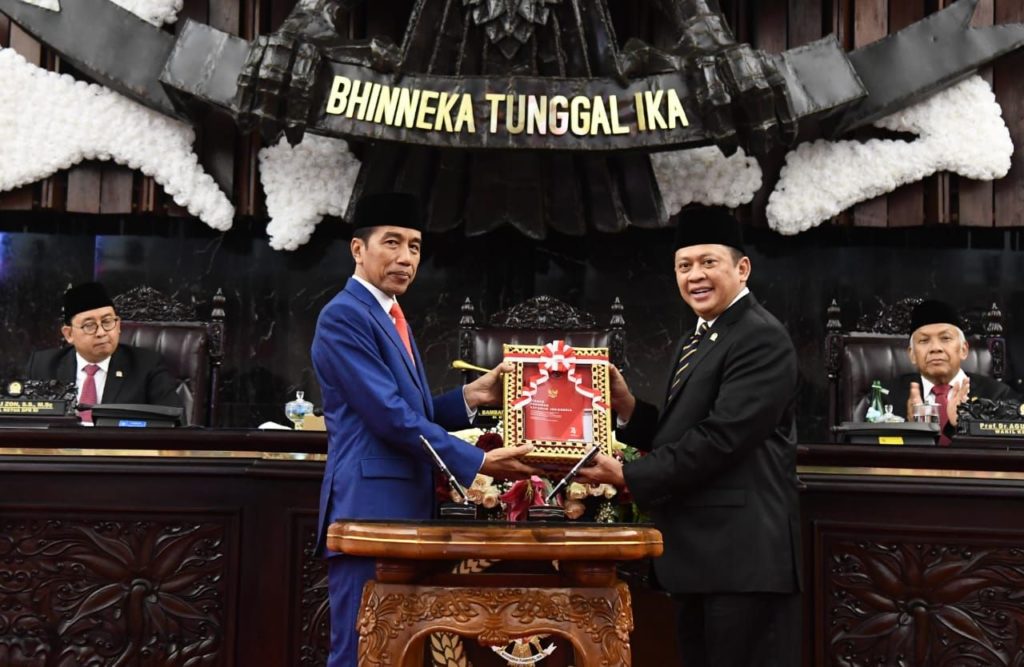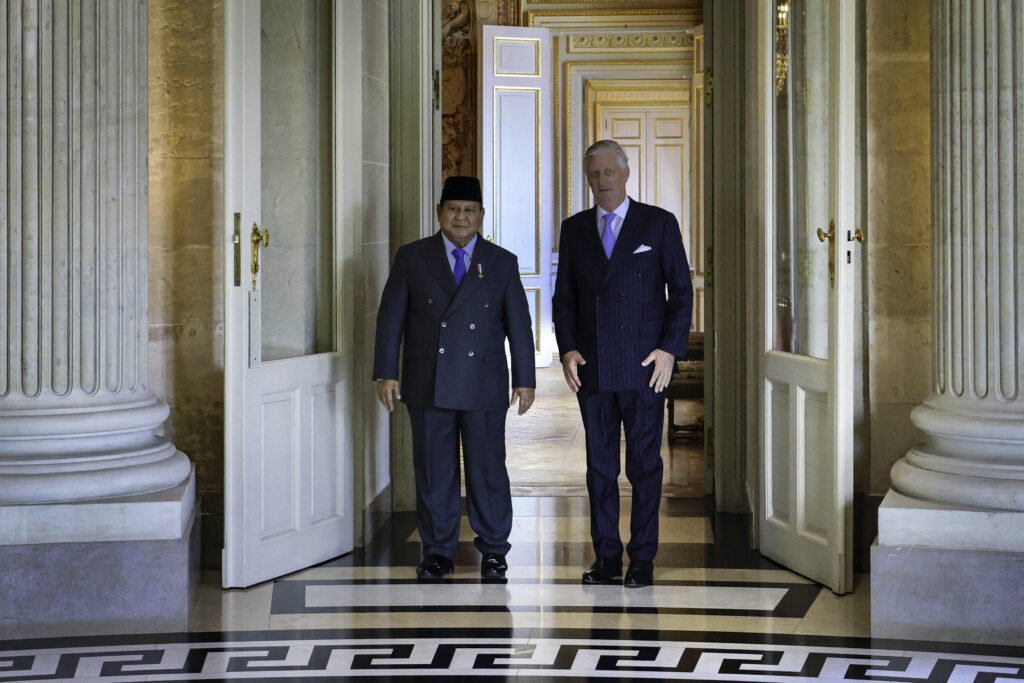Gov’t Allocates Rp8-10 Trillion to Issue 2 Million Pre-Working Cards

President Jokowi hands over Bill on the State Budget for the 2020 Fiscal Year and Its Financial Note to the Speaker of the House of Representatives Bambang Soesatyo, Jakarta, Friday (16/8). (Photo by: BPMI)
The Government has drawn up the State Expenditure to reach the amount of Rp2,528.8 trillion in the 2020 Bill on the State Budget, or about 14.5 percent of the Gross Domestic Product (GDP). The State Expenditure will be utilized for improving human resource quality and continuing social protection programs to meet demographic challenges, according to President Joko “Jokowi” Widodo.
“In order to provide more access to improve skills of youth, job seekers, and those who are changing jobs, the Government will launch Pre-Working cards in 2020,” President Jokowi said in his address on the Presentation of the Government Statement on the Bill on the State Budget for the 2020 Fiscal Year and Its Financial Note Before the Plenary Session of the House of Representatives of the Republic of Indonesia, in Jakarta, Friday (16/8).
Book II on the Bill on the State Budget for the 2020 Fiscal Year and Its Financial Note reads that the launching of Pre-Working cards is due to complaints from jobseekers who have faced countless obstacles to get jobs and due to mismatch between their skills acquired from educational institutions and the needs of employers.
“Pre-Working cards is basically initiated to narrow a gap between human resource skills and the needs of employment. In addition, the policy is also aimed at boosting the quality of competences needed to face industrial revolution 4.0 and digital technology,” the Book reads.
The policy is expected to be able to increase competences of first-time job seekers, those who are changing jobs, and laid off workers so they can fill in the employment that may reduce unemployment rate in Indonesia significantly.
Based on the Book, Pre-Working cards will be distributed to 2 million beneficiaries in 2020. There will be two schemes; regular scheme which will be distributed to 500,000 beneficiaries and digital scheme to be distributed to 1.5 million beneficiaries.
“Regular scheme is the continuation of programs that have been implemented, such as providing face-to- face trainings and competency certification to jobseekers though training agencies (LPK) managed by the Government including work training center (BLK), or through LPK managed by private sectors, and Training Center Industry. The subjects of this scheme are first-time job seekers (skilling), and those who are changing jobs or laid off workers (re-skilling),” the Book states.
On the other side, Pre-Working cards with digital scheme are targeted to young jobseekers (both for skilling and re-skilling), except for those between the age of 15-18 who are still the subjects of 12-year compulsory education program. Though this scheme, beneficiaries may choose types of trainings, including the place and time, through digital platforms such as Gojek, Tokopedia, and other platforms.
“Trainings can be conducted online or face-to-face. Training providers are the training centers which do accord with criteria set by the Government,” the Book continues.
For the record, the Government has allocated Rp8 trillion to Rp10 trillion to implement that program. Considering the budget, the implementation will consider several aspects including the cost effectiveness and efficiency in order to create strong social-economic effects.
According to the Government, the program is to involve a number of parties including ministries/institutions, training agencies both managed by the Government and private sectors, employers, digital platforms, and the beneficiaries.
In addition, to adapt to the changes of economic structure towards the industrial revolution 4.0, the development of the program implementation, be it regular or digital scheme, must be managed by one Project Management Office (PMO). (ES)
Translated by: Rany Anjany Subachrum
Edited by: Mia Medyana Bonaedy








